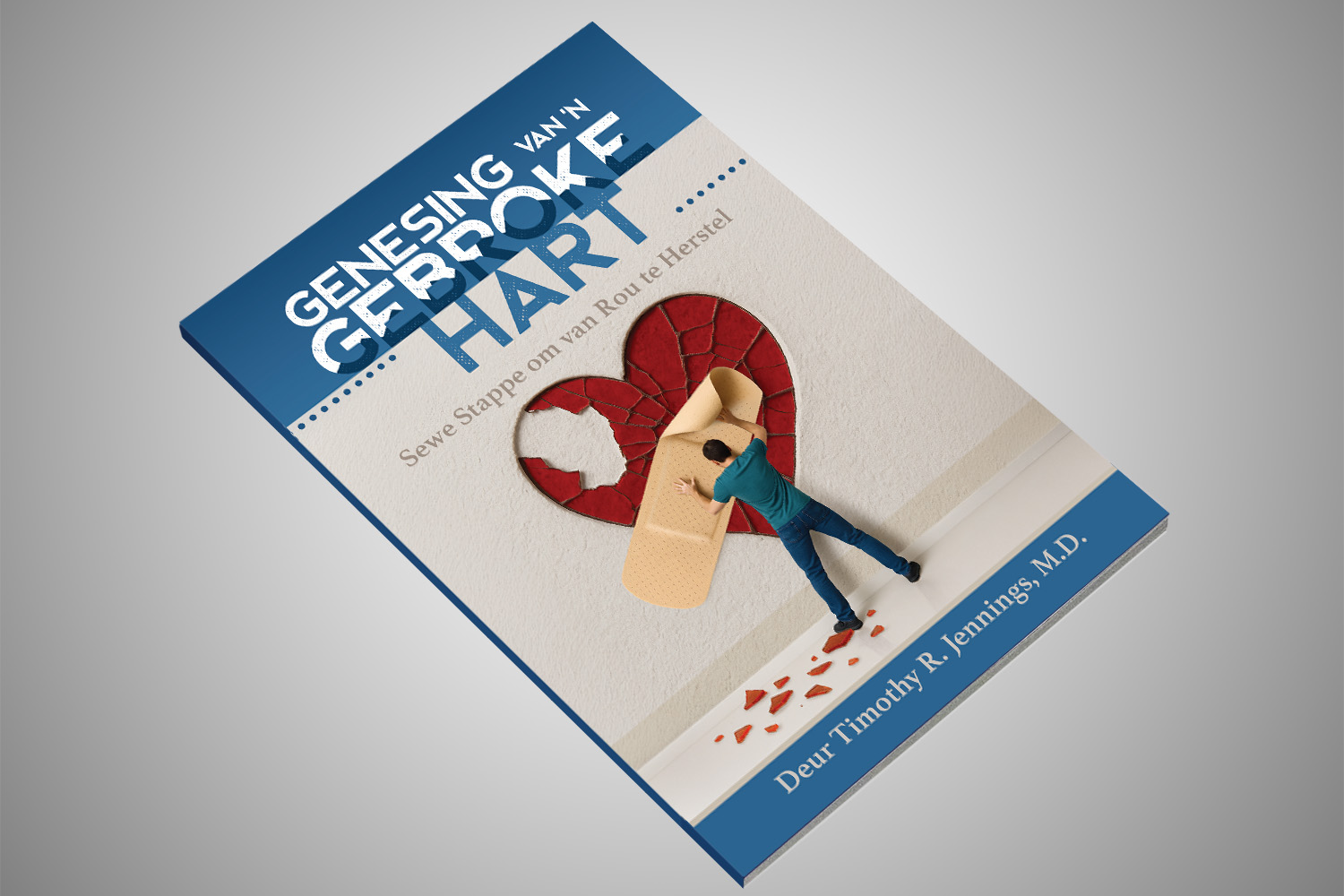Over the years, I have received many requests for advice from those seeking wisdom and guidance on dealing with a narcissist.
As a first principle in essentially everything in life, I encourage you to always diagnose accurately; in other words, be sure of the truth, of what you are dealing with. In this case, before attempting to “deal with a narcissist,” reflect, evaluate, and determine whether you are, in fact, dealing with a narcissist.
Understanding Narcissism
Narcissistic Personality Disorder is a personality structure stemming from deep insecurity and fear—a lack of peace with self and a fear of inadequacy—which is defended against by the maladaptive behaviors diagnostic of the disorder. Narcissism is characterized by grandiosity, inflated self-esteem, preoccupation with thoughts about self and one’s success, an attitude that self is special or better or more deserving than others, a sense of entitlement, lack of empathy, and a constant need or demand for admiration. While they are usually arrogant and prideful, they are envious of others’ successes. Narcissists are typically exploitive and manipulative of others, seeking to get from others what they want.
Narcissism frequently gets confused with Asperger’s Syndrome (AS). While it has been understood that AS is a high-functioning form of Autism, primarily with retention of normal language ability, the different names communicated an immediate comprehension that those with AS were high functioning with normal language skills. Unfortunately, with the release of the DSM-5 (diagnostic rule book for psychiatry), this helpful nomenclature was eliminated, such that AS is now officially included under the name of all other forms of autism and is labelled simply as Autism Spectrum Disorder. While this is diagnostically accurate, it is not helpful operationally, as this nomenclature does not automatically communicate the higher level of functioning of AS individuals. Therefore, in this article, I will use the old nomenclature of AS to be clear that I am not referring to other forms of autism.
Understanding Asperger’s Syndrome
AS is a neurological disorder (not a personality structure problem) in which the brain is unable to process social cues, particularly the emotions of others. Some speculate (and some research suggests this may be true) that AS may be caused by a lack of mirror neurons in the brain. Mirror neurons are understood to be integral in recognizing the emotions of others and allowing us to identify, feel, and empathize with what another person is experiencing. Mirror neurons may play a role in emotional intelligence, what some call EQ, and those with AS, while often having above-average IQ, typically have significant impairments in EQ. It is not that they don’t care about others or the feelings of others; it is that they generally have no actual registration or awareness of the feelings of others.
In other words, the AS individual has a brain that doesn’t process, see, or recognize the emotional and social cues of others and, therefore, will interact in ways that seem rude, uncaring, blunt, and what is perceived to be without compassion or empathy—but this is most often not the case. Rather than not having concern for others, the AS individual doesn’t recognize the emotional discomfort, hurt, distress, or pain of others and, therefore, generally doesn’t respond as others would to those verbal and non-verbal cues. In other words, the AS individual, with a heart focused on doing what is objectively good for another, will speak or act bluntly and directly to address what they believe is necessary to make things better. However, they will not couch their comments with tender, compassionate, or warm expressions. They will not recognize the pain and distress in the eyes of the person they are speaking to when their blunt truth is spoken and, thus, won’t back off or modify. This will result in others experiencing the AS individual as unkind, uncaring, cruel, without empathy, and often conclude falsely that they are narcissistic.
They are like a blind person walking in a crowded room, bumping into things and stepping on toes, but without any malicious intent; in fact, their intent would be not to step on toes if they were aware the toes were there.
Life is often mysterious to the AS individual because they, with good heart motive and intent, focus on doing objective good, fixing problems, improving lives, make choices that are objectively helpful but in such a way that they do not consider the feelings of others and, therefore, people get their feelings hurt and reject the help and often the AS person. This results not only in frustration from the AS person, but often anger, which gets misinterpreted as narcissistic rage, but it is not. It is the normal anger we all feel when our good motives, good intentions, and objectively helpful actions are consistently mislabeled and we are falsely accused of not caring or of doing harm. Why does this happen to the AS individual? Because they don’t care? No, because they don’t have the brain circuits to see and process these elements of relationships.
The Core Difference Between AS and Narcissism
This is quite distinct from the narcissist who does see and process emotions but who doesn’t value the other person more than their need to get for self, and, therefore, will act in rude, demeaning, and uncaring ways. But the narcissist can also, because they are aware of the feelings of others, feign concern, compassion, and empathy for the purpose of manipulating in an attempt to exploit others. This becomes evident by the ultimate outcome of what is done, not just by how the person acts in the moment.
Below is a list of some of the differences often seen between AS and narcissism.
| Asperger’s Syndrome. | Narcissism. |
| Doesn’t understand social interaction. | Understands social cues & manipulates. |
| Does not do silent treatment. | Uses silent treatment as a weapon. |
| You can say no. | May punish you if you say no. |
| Does not do guilt trips. | Uses guilt trips as a manipulative tool. |
| Does not sit on the “pity pot.” | Feels sorry for themselves. |
| Not envious of others’ successes. | Envious of others’ successes. |
| Doesn’t register empathy; not malicious. | Lacks empathy; often malicious. |
| Lacks intuition. | Has intuition and uses it to get what they want. |
| Not connected to their feelings. | Hyper-connected to their feelings. |
| Tends to be one-dimensional. | Tends to flip into different modes or personalities (Dr. Jekyll/Mr. Hyde). |
| Does not blame others. | Tends to blame others. |
| Wants a playbook (structure and predictability). | Wants chaos and control. |
| Likes clear boundaries. | Does not like clear boundaries. |
| Triggered by lack of familiarity. | Triggered by ego threats. |
Triggers in AS vs. Narcissism
Both the AS individual and the narcissist can react with anger to rejection, but they do so for different reasons.
The AS individual’s primary focus is on fixing objective problems, solving puzzles, and making things better, and they are often able to think “outside the box.” They think outside the box because they are not constrained by the walls of other people’s emotions and expectations. They are focused on the problem itself, not on how others will feel about solving it. Thus, when they do intervene with a solution that is objectively effective, but in such a way that breaks social norms, doesn’t consider the feelings of others, is perceived as rude, unkind, uncaring because it is blunt, rather than getting the expected praise for such an effective and creative solution to a problem others seemed to struggle to solve, they instead receive criticism and rejection. And this angers them. In their mind, they did good and good should be rewarded; when it is not, life is frustrating, which often results in anger.
So while the AS individual gets angry when their solutions are not appreciated or their puzzle-solving is interfered with, the narcissist gets angry when they are not valued or praised for their “greatness,” no matter the value of their suggestion, action, or merit. For the narcissist, their anger will stem from people not liking them; the AS individual’s anger stems from people not liking their solutions or interfering with their attempts to fix the problem in the most effective way.
How to Talk to and Redirect Each Type of Person
Understanding this gives insight into effective ways of interacting with either type of person.
For instance, telling an AS individual that they are valued and appreciated while you criticize the way they solved the problem or seek to remove them from solving the problem in order to deal with it in a less efficient but more socially appropriate manner, will typically be experienced as frustrating and “stupid” and will often result in anger. The AS individual is not seeking attention for self; they are motivated to fix problems.
But the opposite is true for the narcissist. They are not actually seeking to fix problems or make things objectively better; they are primarily engaged in such actions as a means to get attention and praise for self, to show they are better than others. The narcissist is seeking to be valued and appreciated rather than solve a puzzle. Thus, it is often quite effective in calming down and de-escalating a narcissist to express your appreciation for them while you redirect or correct their actions.
For instance, the narcissist generally responds quite positively to something like, “Thank you for taking the time to help with this project. I really appreciate you. I know your time is valuable, and it means a lot to know you are willing to invest yourself in helping out. However, I’d prefer if we did it this way instead.”
But an AS individual would not respond positively to such a statement. In fact, such an intervention, kindly presented with value for who they are while simultaneously seeking to interfere with their solution, would most likely be experienced with frustration and anger—especially if the change to their plans is objectively less effective. The AS individual wouldn’t really notice your attempts to value them because they are not primarily concerned with self and are not seeking social validation to feel good about self. The AS individual is concerned about problem-solving and experiences their validation through their efficiency in fixing things and, therefore, appreciates it when others recognize their great puzzle/problem-solving skill, but gets irritated when others interfere with their actions.
Maintain Emotional Objectivity
Once you determine what you are dealing with, AS or narcissism, your success will be directly determined by responding intelligently and objectively and by not reacting emotionally. If you get your feelings hurt by the actions of the other, you will impair your ability to discern and respond in the most effective way. Therefore, allow the other person’s behavior to be evidence of them, not you. Don’t seek to get your value, worth, or sense of wellbeing from them; instead, remember your true value and worth are founded upon your identity in and relationship with Jesus Christ. Always start from this platform.
From this platform of peace with yourself in your identity in Christ, successfully dealing with a narcissist requires setting healthy boundaries. And healthy boundaries are not primarily physical ones but mental and emotional ones, and such healthy boundaries are set upon oneself, not upon others. In other words, we place a boundary upon our own hearts, minds, feelings, expectations, choices, and actions rather than seeking to tell others what they need to do in order to comply with our boundaries.
In other words, we don’t take the accusations, moods, criticisms, or flattery and praise of the narcissist to heart, but we recognize that their actions reveal to us information about them. And then we use that information to make informed choices in governance of ourselves—how much will we trust, how much time will we spend with them, and how much effort will we put in to try to negotiate with them. So rather than saying to the abusive narcissist, “You can’t talk to me like that.” “Oh, no you don’t. That is not acceptable, and you can’t do that.” Instead, inside yourself, you observe and evaluate what the other person’s behavior is telling you about them, and then you decide, in governance of yourself, what you want to do in response.
Responding to Manipulation and Bluntness
If you perceive the other person is trying to manipulate you through anger, accusations either of wrongdoing or your not loving or caring for them, crying, expressed disappointment, whatever the manipulation may be, then rather than responding emotionally, respond intelligently with something like: “I am sorry my choice on this matter is distressing you, but I love you enough and respect you enough to allow you to have those feelings if you need to. It’s okay if you are angry right now; we all experience anger at times—just know your anger in this moment won’t cause me to love you less. When you calm down and are ready to discuss why this is so upsetting, I am happy to talk about it with you.” But you don’t back off, placate, or change your choice simply to get them to change their moods. Notice, in this scenario, the boundary set is with oneself, not trying to tell another how they should feel or act.
If dealing with an AS individual who is upset, don’t take their anger personally; instead, remain objective and, understanding that their anger is most often related to either interference with or lack of appreciation for their problem-solving, ask them to explain what has them upset. They will typically be very direct, may seem rude and blunt, but they are not intending to be so, so again, don’t take the bluntness personally, but appreciate them for their directness and honesty, and then focus more on the objectives of the situation rather than the feelings.
Consequences and Trials: Opportunities for Growth
Narcissists, like every human, will make honest human mistakes and suffer the consequences, but rather than reflecting on events and seeking to identify where their process led to the problems and then taking responsibility and learning from events, the narcissist will typically deny their shortcomings and blame others. It is important, therefore, when narcissists who are in the valleys of distress that are brought upon themselves by their own choices, that the people who love them do not accept blame and also do not intervene to relieve the distress, but allow them to reap what they have sown and require that the narcissist make choices that are objectively therapeutic toward resolving their own dilemma.
I am not saying we completely abandon the narcissist; I am saying we don’t placate, make excuses, collude with blaming, cover for, or fix what the narcissist is capable of fixing for themselves if they would acknowledge their own mistakes.
To simply comfort, deliver, or validate and encourage at such times will miss opportunities for their growth. It is the trials and difficulties in life that help us build character. As the apostle Paul wrote,
We also rejoice in our sufferings, because we know that suffering produces perseverance; perseverance, character; and character, hope. And hope does not disappoint us, because God has poured out his love into our hearts by the Holy Spirit, whom he has given us (Romans 5:3–5 NIV84).
Remember, no matter with whom we are dealing, each one of us ultimately is only responsible for the governance of ourselves, for being the most healthy, mature, Christlike individuals we can be, not for what others think or feel about us. Our vision and focus must be on Jesus Christ first and foremost, to practice His methods and principles in our lives, and not on what others think about us. Only as we become healthy in Jesus are we able to have healthy relationships and genuine unity with others. As Paul also wrote,
And so we shall all come together to that oneness in our faith and in our knowledge of the Son of God; we shall become mature people, reaching to the very height of Christ’s full stature. Then we shall no longer be children, carried by the waves and blown about by every shifting wind of the teaching of deceitful people, who lead others into error by the tricks they invent. Instead, by speaking the truth in a spirit of love, we must grow up in every way to Christ, who is the head (Ephesians 4:13–15 GNT, emphasis mine).
Don’t be blown about by the waves of emotions, manipulations, and accusations of narcissists, but, keeping your eyes on Christ, speak truth in love and you will find yourself maturing, growing, healing, and experiencing ever-increasing peace and health.











 using your credit or debit card (no PayPal account needed, unless you want to set up a monthly, recurring payment).
using your credit or debit card (no PayPal account needed, unless you want to set up a monthly, recurring payment). instead?
instead?